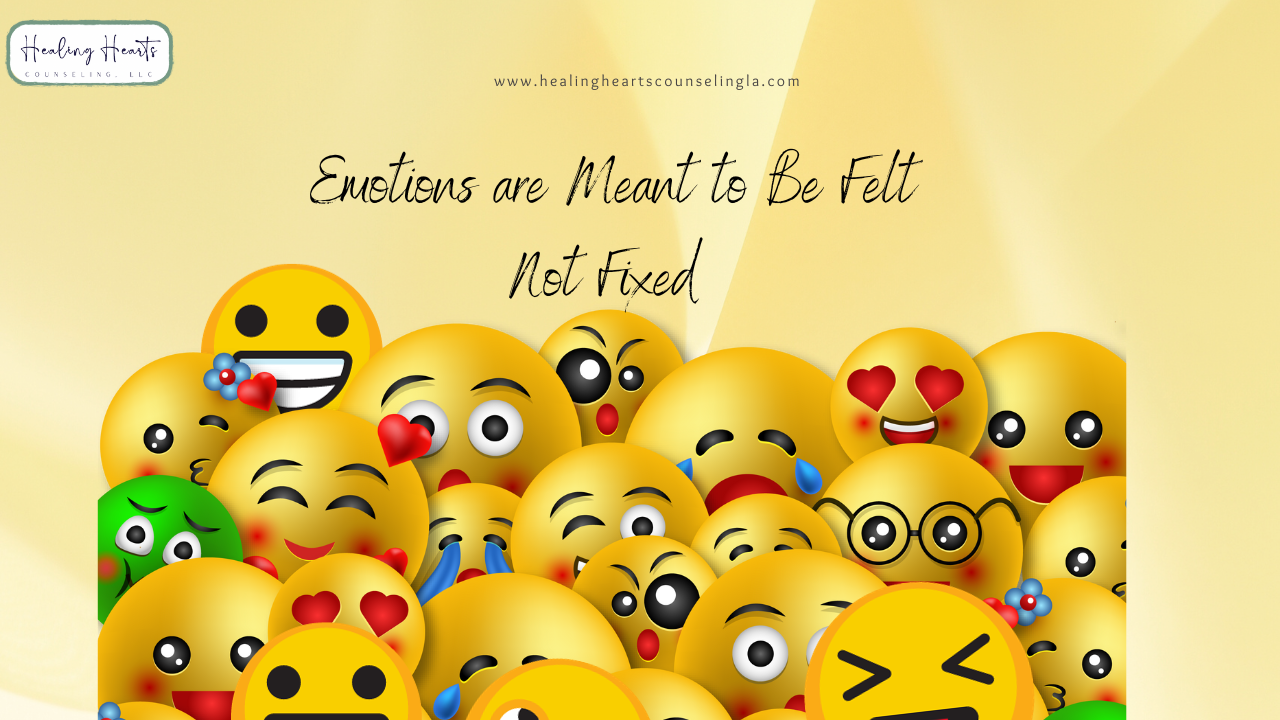Emotions are For Feeling
Sep 27, 2023
Let's be honest. Big emotions can make us uncomfortable. Someone starts crying in a small group, and the crowd gets a little antsy. A toddler has a meltdown, and parents and others people near can feel triggered by their big emotions. A teacher yells in a classroom, and anxiety spikes. You attend a funeral and while waiting in line to speak with the grieving family members, you're trying to come up with something to say.
A common response to uncomfortable emotions is to try to fix them. You're sad. Let me help you laugh or make your issue seem smaller so you don't have to feel sad. You're angry, let's change the subject or let me help you push that anger down. You're nervous, let me talk you out of it. While I truly believe, responses like that have the best intentions, often times a more helpful solution is to allow the emotion to be felt not fixed.
Isn't that a relief? We don't have to fix the emotions of other people! Phew, my load just got much lighter. Let that sink in for a moment. What we inadvertently communicate when we allow ourselves and others to feel their emotions is that these emotions aren't so terrible and hard that they have to be ignored and pushed away. It creates safety. Helping others feel safe is a beautiful gift!
Part of being human is that we have the ability to feel and experience the gambit of emotions. Being able to feel and express a wide range of emotions is actually healthy. This may go without saying, but just because we can feel emotions doesn't mean our behavior is without excuse. For example, just because you're angry doesn't excuse punching a wall or yelling at someone. Feeling and behaving are two different things. The more aware we are of our emotions, the less likely they are to come out as behaviors that aren't working for us or others.
And for all you fixers out there. Good news! Just because emotions need to be felt not fixed, doesn't mean there isn't room for helping people come up with good solutions to their problems. As Dan Siegal would say, first connect, then redirect. If you don't lead with empathy and a connection point that you understand where the other person is, jumping to a fix the problem won't be well received most times.
In interactions where big emotions are expressed. Listen. What is the person saying? Be curious about what's driving that emotion. Notice their body language. When we're attuned to them, instead of worrying about our response, we offer them a much better gift than any "fix" could provide.
For parents, this is true for our kids too. Yes, kids have big emotions fueled by some pretty irrational thinking. After all, the rational part of their brain is still growing. When we try to fix without helping them feel seen or felt, we'll miss them. Attuned adults empathizing well with children, helps kids become emotionally regulated adults. This is a big win.
Next time you notice your body feeling uncomfortable around expressed emotions, remind yourself you don't have to fix those emotions. You can listen and empathize well. And hey, maybe your big emotions aren't so scary either. Notice them, be curious about them, and pay attention to why they're showing up. All emotions are temporary, they come for a while then they go. Emotions are meant to be felt. They're not as scary as they seem.

